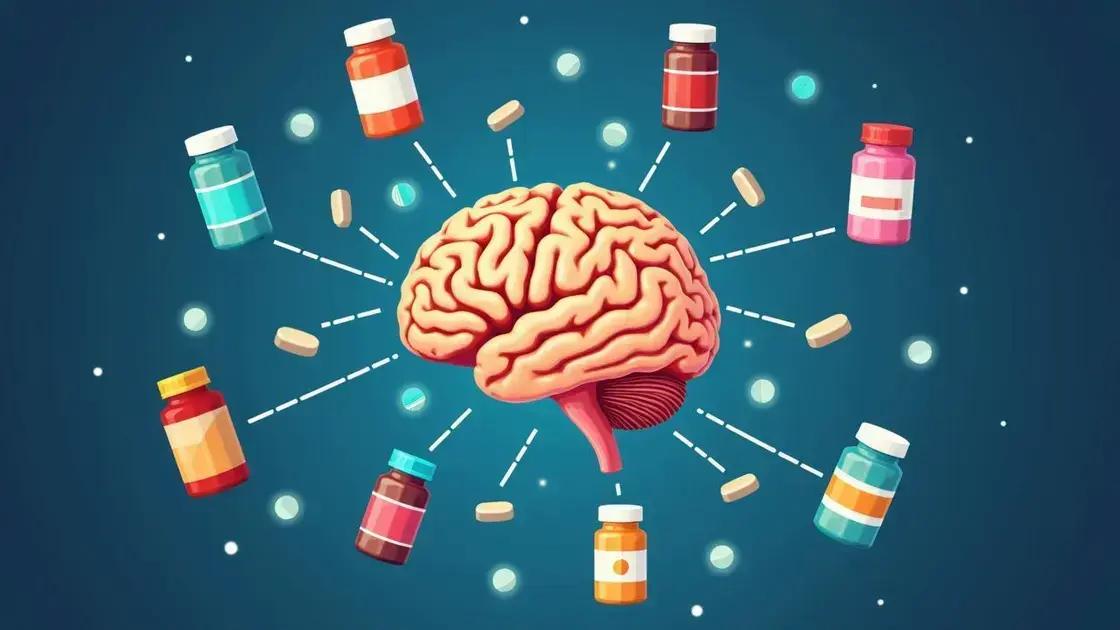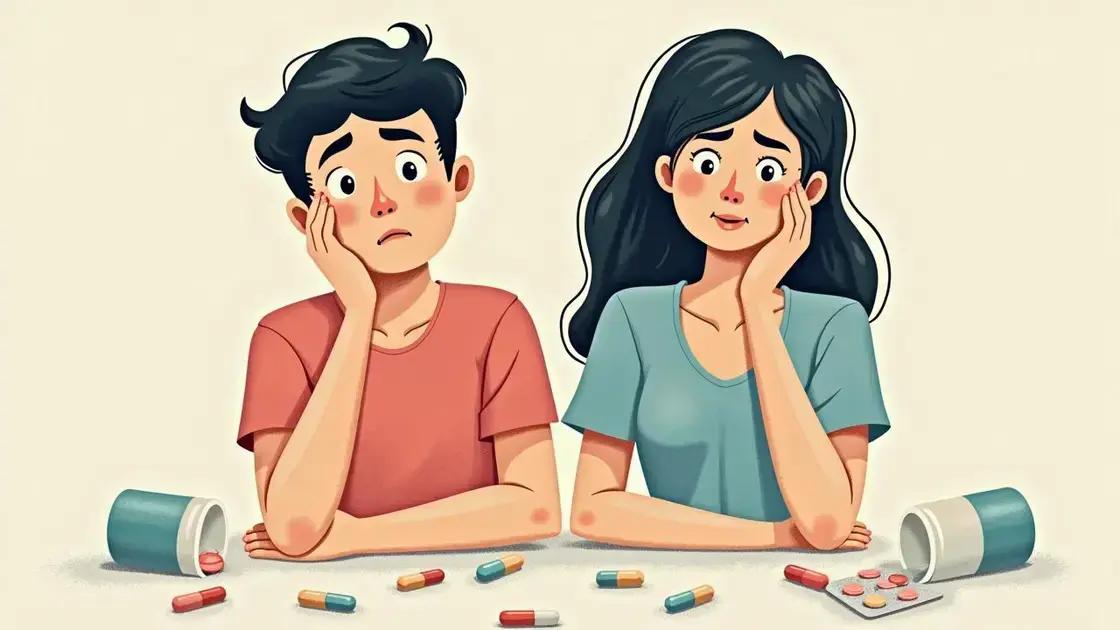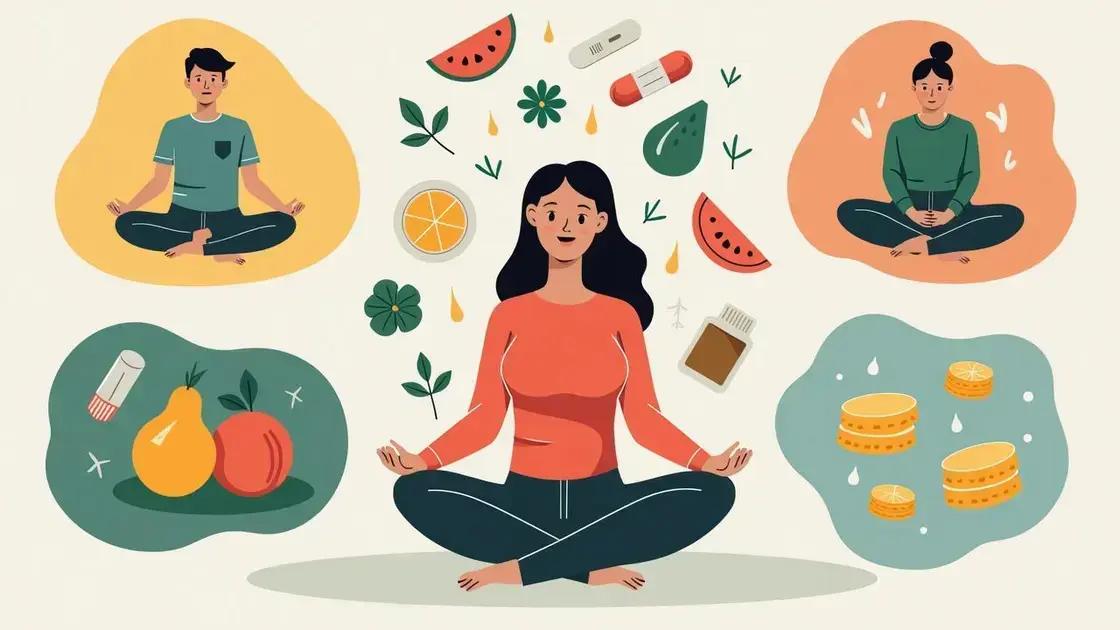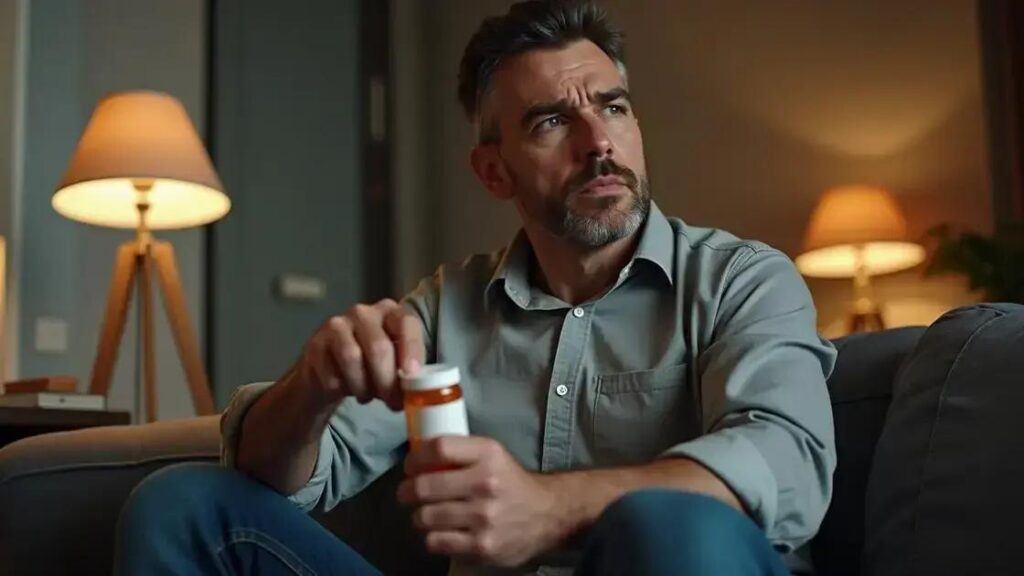The impact of antidepressants on erectile dysfunction can be significant, often leading to reduced libido, difficulties achieving erections, and delayed orgasm. Alternatives such as therapy, lifestyle changes, and natural remedies can help manage symptoms while minimizing side effects.
The impact of antidepressants on erectile dysfunction is a crucial topic for many individuals experiencing intimacy issues while on these medications. Patients often discover that, while antidepressants can help with their mental health, they might inadvertently cause erectile dysfunction. Understanding this relationship is essential for anyone considering or currently using these medications. In this article, we will delve into the complexities of erectile dysfunction, explore how antidepressants work, and discuss alternative options that might mitigate these side effects.
Understanding Erectile Dysfunction

Erectile dysfunction (ED) is a condition that affects many men, leading to difficulties in achieving or maintaining an erection. Understanding this condition is crucial for those experiencing it, as well as their partners. ED can result from various physical and psychological factors, including health conditions like diabetes, heart disease, and stress or anxiety.
Common Causes of Erectile Dysfunction
There are several common causes of erectile dysfunction:
- Physical Causes: Conditions such as diabetes, high blood pressure, and obesity can damage blood vessels and reduce blood flow to the penis.
- Psycho-emotional Factors: Stress, anxiety, and depression can significantly affect sexual performance.
- Lifestyle Choices: Smoking, alcohol use, and lack of physical activity can contribute to ED.
The Importance of Seeking Help
For many men, talking about ED can be difficult, but seeking help is important. Health care providers can offer guidance, treatment options, and the support necessary to address both physical and emotional concerns.
Understanding erectile dysfunction is a vital first step. Recognizing the causes can empower men to seek help and explore treatment options.
How It Relates to Overall Health
Experiencing ED can sometimes be a warning sign of more serious health issues. Therefore, maintaining a healthy lifestyle, including regular exercise and a balanced diet, can not only improve erectile function but also contribute to overall well-being.
How Antidepressants Work

Antidepressants are medications used to treat depression and anxiety. They can work in various ways to help improve mood and overall emotional well-being. Understanding how they affect brain chemistry is essential.
How Antidepressants Affect Brain Chemistry
Most antidepressants work by changing the levels of certain chemicals in the brain called neurotransmitters. The three main types are:
- Selective Serotonin Reuptake Inhibitors (SSRIs): These increase serotonin levels, which can boost mood and reduce feelings of sadness.
- Serotonin-Norepinephrine Reuptake Inhibitors (SNRIs): These help by increasing both serotonin and norepinephrine, another neurotransmitter that can improve energy levels and focus.
- Tricyclic Antidepressants (TCAs): These are older medications that also affect neurotransmitters but with different mechanisms and often more side effects.
Timeframe for Effectiveness
Antidepressants usually take several weeks to become effective. Patients might not see improvements in their mood immediately. It’s important to continue taking the medication as prescribed until the doctor advises otherwise.
Side Effects to Consider
While antidepressants can be beneficial, they may also have side effects. Some common ones include weight gain, insomnia, and, notably, changes in sexual function. This can be especially concerning for men, as it can lead to erectile dysfunction.
Learning how antidepressants work helps patients understand how they might affect their mental and physical health. Knowledge is key in discussing any concerns with a healthcare provider.
Link Between Antidepressants and Sexual Dysfunction

There is a well-documented link between antidepressants and sexual dysfunction. Many medications used to treat depression can affect sexual desire and performance. This is an important issue for those taking these medications.
How Antidepressants Cause Sexual Dysfunction
Antidepressants can interfere with the body’s natural ability to achieve arousal and orgasm. Some common effects include:
- Reduced Libido: Some individuals may experience a decreased interest in sexual activity.
- Difficulties Achieving Erection: Men may find it challenging to get or maintain an erection.
- Delayed Orgasm: It might take longer for individuals to reach orgasm or they may find it harder to do so.
Prevalence of Sexual Side Effects
Studies suggest that a significant number of people taking antidepressants report sexual side effects. Reports indicate that anywhere from 30% to over 70% of patients may experience some form of sexual dysfunction. This can lead to dissatisfaction in relationships and impact overall quality of life.
Factors Influencing the Link
Several factors can influence how antidepressants affect sexual function:
- Type of Antidepressant: Different classes of antidepressants have varying side effects. SSRIs, for instance, are often more associated with sexual dysfunction.
- Individual Differences: Each person’s body reacts differently to medications. Factors like health conditions and age can play a role.
- Dosage: Higher doses of certain antidepressants can lead to increased sexual side effects.
Being aware of this link can help individuals have informed discussions with their healthcare providers about any concerns related to their treatment.
Managing Side Effects

Managing side effects from antidepressants is crucial for maintaining a good quality of life. Many individuals experience side effects that can impact their daily activities and relationships. Being proactive can help minimize these effects.
1. Open Communication with Your Doctor
Talking openly with your healthcare provider about side effects is essential. They can help you understand what to expect and may adjust your dosage or suggest an alternative medication.
2. Monitoring Side Effects
Keep a journal to track any side effects you may experience. Note their frequency, duration, and any lifestyle changes that may help alleviate them. This information can be valuable during doctor visits.
3. Healthy Lifestyle Choices
Making healthy lifestyle choices can help manage side effects:
- Regular Exercise: Physical activity can improve mood and boost energy levels, potentially reducing some side effects.
- Balanced Diet: Eating nutritious foods can help overall health and may lessen side effects.
- Adequate Sleep: Prioritizing good sleep habits can help combat fatigue and improve mood.
4. Consider Therapy
Therapy or counseling can be helpful for those experiencing emotional side effects from antidepressants. Talking to a professional can provide coping strategies and emotional support.
5. Exploring Alternatives
If side effects are bothersome, it may be worth exploring alternative treatments. Various options are available, including different antidepressants, herbal remedies, or non-medical interventions. Consult your doctor before trying anything new.
Alternatives to Antidepressants

For those who may be struggling with the side effects of antidepressants, there are several alternatives worth exploring. These options can offer relief from symptoms without some of the unwanted sexual side effects.
1. Therapy and Counseling
Talk therapy, such as cognitive-behavioral therapy (CBT), is a proven approach for treating depression and anxiety. It helps individuals understand their thoughts and feelings, develop coping strategies, and improve emotional well-being.
2. Lifestyle Changes
Adopting a healthier lifestyle can have a positive effect on mood and mental health:
- Regular Exercise: Physical activity releases endorphins, which can help boost mood.
- Balanced Diet: Eating nutritious foods can improve energy levels and overall health.
- Sufficient Sleep: Prioritizing sleep can significantly influence mood and emotional stability.
3. Natural Remedies
Some individuals may find relief using natural remedies, such as:
- Herbal Supplements: St. John’s Wort and omega-3 fatty acids have been studied for their potential benefits in reducing depression symptoms.
- Mindfulness and Meditation: Practices that promote relaxation and reduce stress can enhance emotional well-being.
4. Alternative Medical Treatments
Alternative treatments, like acupuncture or yoga, may offer support for mental health. Some people find these therapies help with relaxation and mood improvement.
5. Combination of Approaches
Often, using a combination of therapies can be more effective than relying on a single approach. Collaborating with healthcare providers to develop a comprehensive plan is essential.
Understanding the Impact of Antidepressants on Erectile Dysfunction
Antidepressants can significantly affect sexual function, leading to challenges such as erectile dysfunction. It is vital for individuals to recognize the potential side effects of these medications on their sexual health.
Open communication with healthcare providers is essential for managing any side effects and exploring alternatives when necessary. Therapy, lifestyle changes, and natural remedies can serve as effective approaches to maintain mental health without the unwanted sexual dysfunction associated with many antidepressants.
By being informed and proactive, individuals can find the most suitable treatment options that enhance both their mental well-being and sexual health.
FAQ – Frequently Asked Questions about Antidepressants and Erectile Dysfunction
What is the connection between antidepressants and erectile dysfunction?
Antidepressants can affect sexual function, often leading to difficulties such as erectile dysfunction due to their impact on neurotransmitters in the brain.
How can I manage the side effects of antidepressants?
Managing side effects involves open communication with your doctor, monitoring symptoms, adopting a healthy lifestyle, and considering therapy.
What lifestyle changes can help improve sexual health?
Regular exercise, a balanced diet, adequate sleep, and stress management techniques can all contribute to improved sexual health.
Are there alternatives to antidepressants available?
Yes, alternatives such as therapy, lifestyle changes, herbal supplements, and yoga may help manage symptoms without the sexual side effects.
What role does therapy play in managing depression and sexual dysfunction?
Therapy can help individuals address emotional issues related to depression and provide coping strategies that improve overall mental health and sexual function.
Can I talk to my doctor about switching antidepressants?
Absolutely! It’s important to discuss any concerns about side effects with your doctor, who can help find a suitable alternative that minimizes problems.













